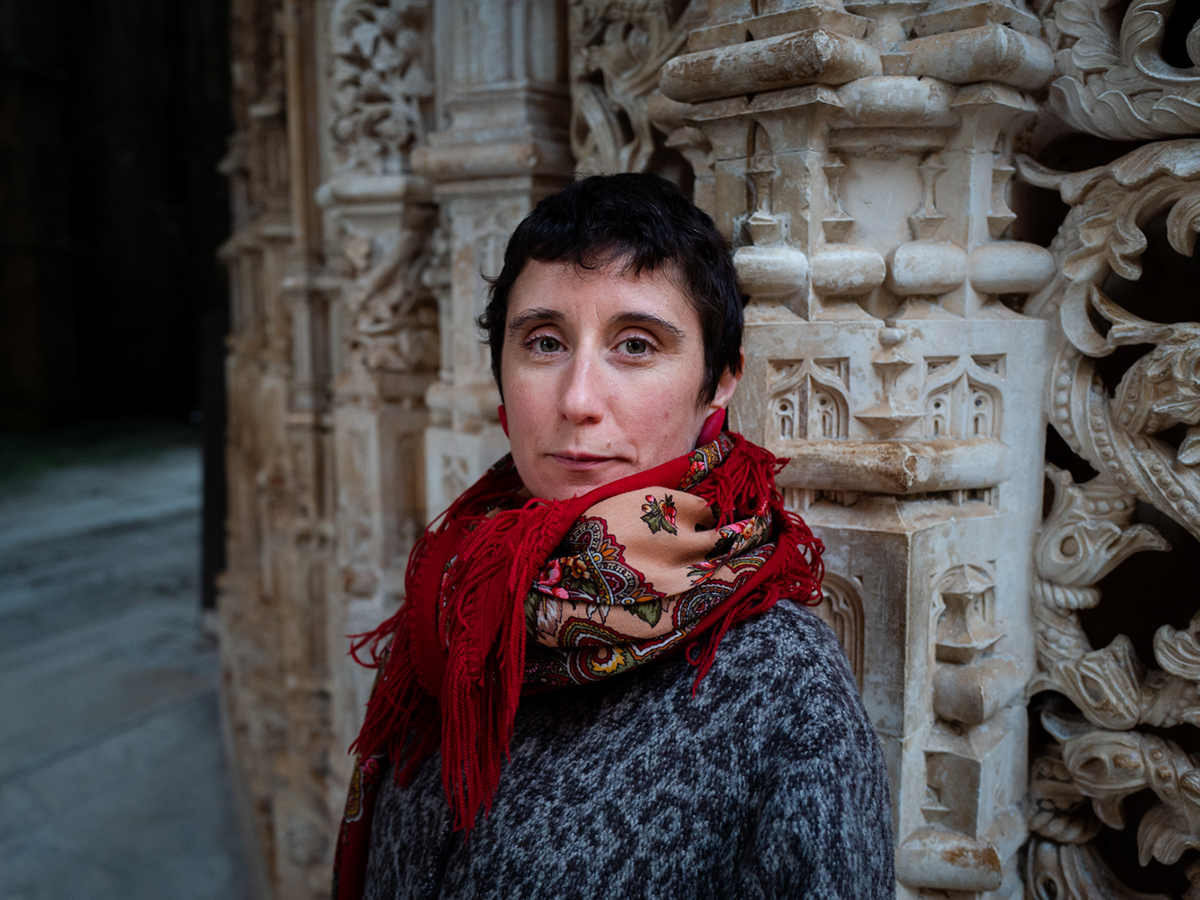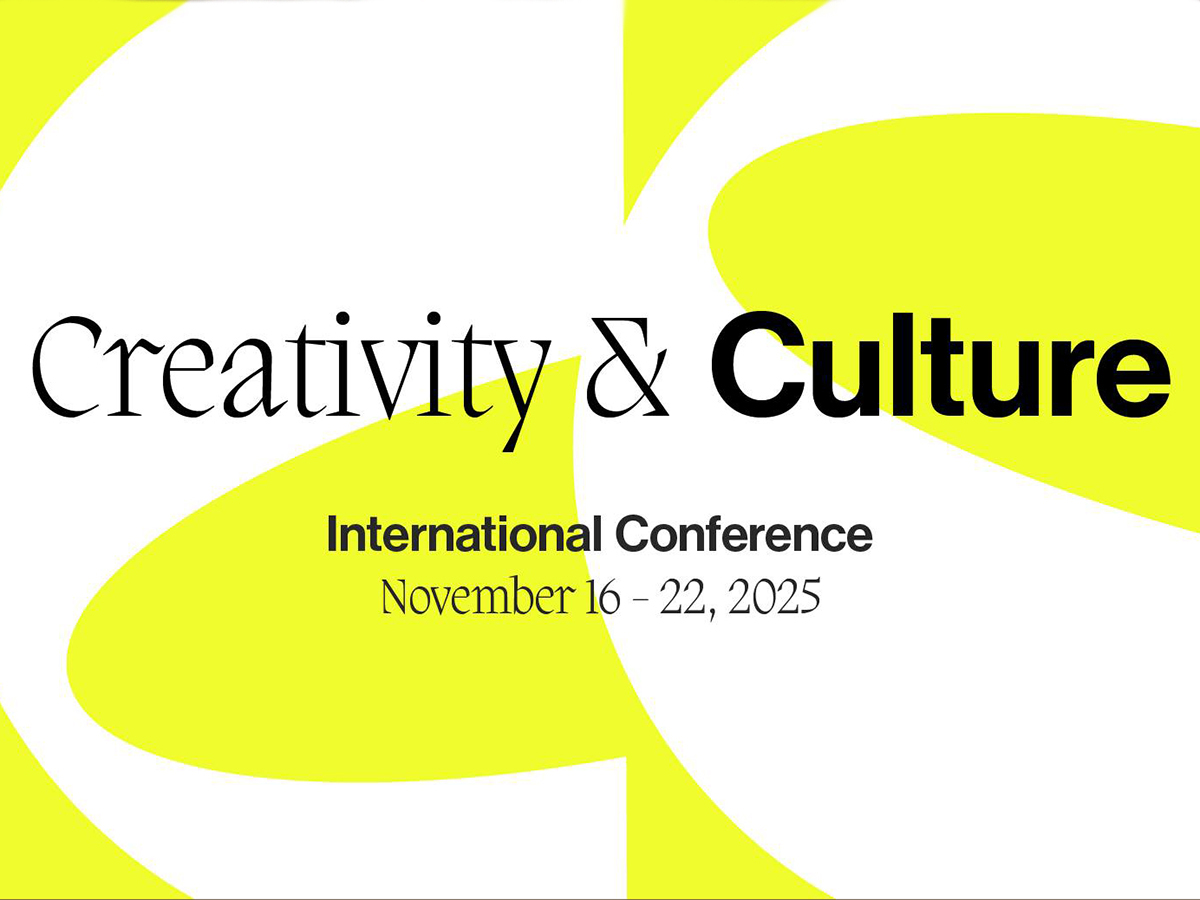 In an age marked by rapid transformation and recurring crises, the cultural and creative field finds itself navigating a landscape of both unprecedented opportunities and mounting pressures. Global uncertainties—economic, social, and political—intersect with market–driven policies that increasingly push cultural actors to produce, compete, and export, often at the expense of sustainability, equity, and cooperation. Dr Cristina Farinha, a freelance expert in policy research, evaluation, cooperation, and development, has dedicated her career to understanding and strengthening the role of culture in governance, development, and international collaboration. Drawing from decades of experience across Europe, Africa, the Middle East, and the USA, her work bridges research, practice, and policy-making in culture, heritage, and the creative economy.
In an age marked by rapid transformation and recurring crises, the cultural and creative field finds itself navigating a landscape of both unprecedented opportunities and mounting pressures. Global uncertainties—economic, social, and political—intersect with market–driven policies that increasingly push cultural actors to produce, compete, and export, often at the expense of sustainability, equity, and cooperation. Dr Cristina Farinha, a freelance expert in policy research, evaluation, cooperation, and development, has dedicated her career to understanding and strengthening the role of culture in governance, development, and international collaboration. Drawing from decades of experience across Europe, Africa, the Middle East, and the USA, her work bridges research, practice, and policy-making in culture, heritage, and the creative economy.
At the 16th International Conference Creativity & Culture (CC2025), she will present her research on “Cultural Cooperation in Times of Turbulence”, reflecting on the urgent need to rethink existing collaboration models. Her contribution calls for reimagining cultural cooperation beyond competition and export, proposing frameworks that foster fairness, reciprocity, and sustainability. By addressing the challenges and possibilities of cultural mobility, exchange, and governance, Dr Farinha opens a timely dialogue on how cultural actors and institutions can adapt and thrive in turbulent times while preserving their essential role as agents of social connection and innovation.
Cristina, you have been working internationally in cultural policy and creative industries for many years. What excites you most about speaking at CC2025 in Lithuania?
I got to know this event when I did a teaching visit to the Kaunas Faculty of Vilnius University. Beyond lecturing, I have participated in the CC2017 as a moderator and was impressed by the relevance of the topics discussed in an atmosphere of familiarity between students, researchers, professors, artists, and cultural practitioners. This close and diverse interaction is very precious. In addition, in 2017 the city was preparing for the European Capital of Culture Year, as Kaunas held this title in 2022, which allowed for interesting and timely debates. Therefore, I am happy to return, experience the city, and discuss the state of culture and creativity nowadays within this community.
Your presentation addresses “Cultural Cooperation in Times of Turbulence.” What does “turbulence” mean in the cultural context today?
In today’s cultural context, “turbulence” describes a state of instability, disruption, and rapid change that challenges traditional modes of cultural exchange and demands new, more resilient, and equitable cooperation models. I intend to point out a set of interlinked pressures and uncertainties that affect how cultural actors create, share, and sustain their work. This “turbulence” can be unpacked into several dimensions, spanning economic, political, social, technological, and environmental, which I would like to discuss in Kaunas this November.
In your view, what role can smaller countries like Lithuania play in shaping global cultural dialogue?
Smaller countries can actually play relevant roles precisely because of their agility, but also, in the case of Lithuania, historical experience. At the crossroads of east and west, it has unique insights into both European integration and post-Soviet transformation, making it well placed to convene conversations and act as a connector, fostering dialogue across different regions. I would add that Lithuania, because of its scale, may also bring alternative visions and practices to the dialogue in the digital field, for instance, as well as cultural diplomacy.
CC2025 is about bringing together scientists, artists, and cultural enthusiasts. How do you see the connection between research and artistic creativity?
This connection remains essential to be nurtured. Artistic creativity processes are actually all about research. Even if artistic languages, codes, and techniques are pretty specific. Artistic research is also a method of inquiring into the world and a way of producing knowledge. The fact that CC2025 does not target specific academic or artistic disciplines but caters instead to multi- and transdisciplinary professionals also allows this dialogue to be vivid and pertinent.
Your career bridges policy, academia, and practice. How do these worlds inform each other in your work?
For me, these worlds have always been interdependent. Policy challenges allow me to shape research questions and debates, while academic methodologies and theories give me the tools to analyse cultural trends critically. Conversely, practice ensures that policy and research stay connected to actual needs on the ground.
What advice would you give to young cultural professionals in Lithuania who want to work internationally?
Nowadays, internationalisation is not only the reward of long and successful careers but also a process that can integrate professional lives from early stages on. To this end, building connections and networks is key. One needs to find peers and soulmates to make the best out of our international experiences. There are multiple opportunities to break the ice, from exchanges, participation in events, workshops, and study programmes, job shadowing and traineeships, volunteering, and starting already during educational and training paths. I advise identifying and connecting to the right information sources to stay tuned. Above all, remaining curious, open, and respectful to diversity is what counts to be able to learn and engage adequately with the world.
 The 16th International Conference “Creativity & Culture” (CC2025), taking place from November 16 to 22, 2025, invites leading academic scientists, researchers, scholars, artists, Cultural and Creative Industry professionals, students, and all those interested in Creative Business, Arts & Culture Management, and Marketing to discuss current trends and challenges in Cultural Management and the Creative Industries. This Conference provides a welcoming interdisciplinary platform for exchanging knowledge and fostering meaningful dialogue.
The 16th International Conference “Creativity & Culture” (CC2025), taking place from November 16 to 22, 2025, invites leading academic scientists, researchers, scholars, artists, Cultural and Creative Industry professionals, students, and all those interested in Creative Business, Arts & Culture Management, and Marketing to discuss current trends and challenges in Cultural Management and the Creative Industries. This Conference provides a welcoming interdisciplinary platform for exchanging knowledge and fostering meaningful dialogue.
The conference will take place live and online at:
Vilnius University, Kaunas Faculty, Muitinės str. 8, Kaunas, Lithuania;
Vilnius Academy of Arts Kaunas Faculty, Muitinės str. 4, Kaunas, Lithuania;
MS Teams platform (online).
Main Conference Page: https://www.culcre.net/main-information